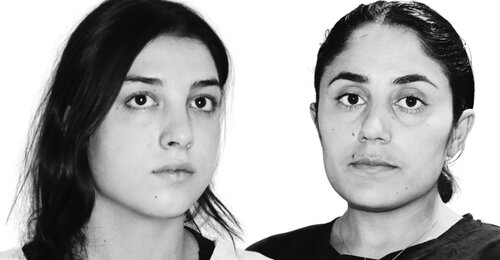Iraq
In 2014, the Islamic State of Iraq and the Levant (ISIS) launched a genocide against the Yazidis, an ethno-religious minority group indigenous to northern Iraq.
ISIS executed around 5,000 Yazidi men and boys and took more than 6,000 women and girls captive and subjected them to forced marriages, rape, and other forms of conflict-related sexual violence. Boys were also kidnapped and indoctrinated, trained to become child soldiers and fighters for ISIS.
From 2020 to 2024, we partnered with Nadia’s Initiative (NI) to deliver an interim reparative measures project for and with survivors in Sinjar and Dohuk. The project aimed at helping them rebuild their lives, while advocating for national authorities to deliver survivor-centric reparations.
This project has helped me confront my past and heal. I am slowly rebuilding my life, with my family by my side.
2020
PROJECT BEGAN
2024
PROJECT ENDED
1,040
SURVIVORS PARTICIPATING
It included both adult and child survivors, including children born in captivity, and provided financial compensation, access to education, and medical, psychosocial and psychological care.
Survivors designed a memorial statue and garden as their collective form of interim reparative measures, to serve as both remembrance and a tribute to their resilience.
The project created positive change beyond survivors themselves; in our final evaluation, 87 per cent of participants reported improved family well-being, while two-thirds reported more social acceptance. Livelihood projects run by survivors helped benefit the wider community, still largely destroyed following the ISIS occupation.
Formal justice for the Yazidis remains largely elusive, with few perpetrators tried in court. As our work in Sinjar and Duhok came to a close, 96 per cent reported a profound sense of recognition from their involvement in the project, while 92 per cent felt they fully attained a sense of justice.
Discover our publications:
- Impact Report ( EN - AR )
- Country Briefing
Yazidi Survivors’ Law
The Yazidi Survivor’s Law (YSL) was adopted in March 2021, providing reparations for women abducted by ISIS following intensive advocacy from survivors and civil society organisations.
However, various challenges limit survivors’ ability to access these rights, including difficulties in registering cases and infrastructure gaps, particularly in conflict-affected areas. Access to appropriate mental health, medical services and education remain a serious challenge for most.
Together with NI, we organised various initiatives to build their mobilisation and advocacy capacity to share their concerns with relevant actors and partner organisations, including the SEMA network, the General Directorate of Survivors Affairs (GDSA), the International Organization for Migration and the UN Assistance Mission for Iraq.
GSF also organised a high-level meeting of survivors, GDSA and state officials in Geneva, and an assessment mission to Iraq to review opportunities for implementing education as a form of reparation.

The project was carried out in partnership with Nadia’s Initiative, Mission East, Jesuit Worldwide Learning, Doctors Without Borders and Justice Center Iraq. Advocacy and technical support activities were carried out in collaboration with Nadia’s Initiative, Yazda, and Farida Global.
More from Iraq




